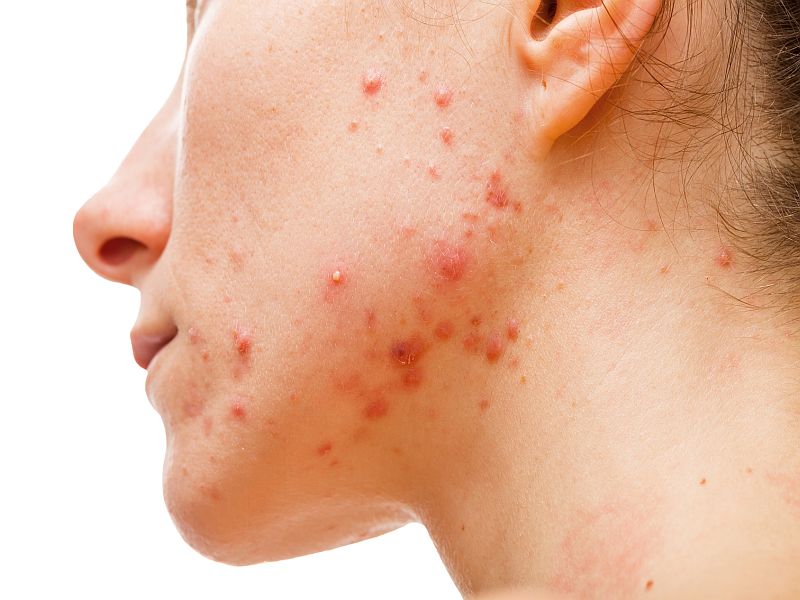Get Healthy!

- Posted March 4, 2019
Acne Drug Accutane May Not Depress Mood After All
For years, doctors have debated the safety of the acne drug most commonly known as Accutane, but new research suggests the medication does not boost depression risk among its users.
"The existing literature to date is quite mixed with regards to the issue of whether there is or is not an association between isotretinoin [Accutane] use and increased risk of depression," explained study author Dr. Bethanee Schlosser.
"Our retrospective, population-based study shows no increased risk of depression in patients taking isotretinoin, compared to patients with acne but not taking isotretinoin," she said.
Still, while she found the results reassuring and a mirror of what she sees in her clinical practice, it remains "critical that patients maintain open communication with their dermatologists," Schlosser added.
"It is vital that dermatologists query patients about the impact of their acne on their mood, as well as any underlying medical or mental health history, which may influence selection of treatment," she said.
"Patients who are prescribed systemic treatment for acne, including isotretinoin, should be monitored closely for potential adverse effects during their entire treatment course," according to Schlosser, who is an associate professor in the department of dermatology at the Northwestern University Feinberg School of Medicine, in Chicago.
In the study, her team reviewed medical records on more than 38,000 patients between the ages of 18 and 65. All patients resided in the Midwestern region of the United States, and all had been diagnosed with an acne condition at some point between 2001 and 2017.
Almost 1,100 of the patients had been prescribed isotretinoin as part of their treatment program; nearly 37,000 had not. Among those taking the drug, treatment lasted for about five months, on average.
In the end, the research team found that depression onset was actually slightly less among isotretinoin patients (under 4 percent) compared with the non-drug group (nearly 5 percent).
Schlosser argued that the finding should be interpreted in concert with what clinicians do know for sure -- "that acne [itself] is associated with increased risk of mood changes, low self-esteem and depression."
And, she added, "the more severe the acne, the potentially greater impact on quality of life and mood." Schlosser suggested that, as a practical matter, treating the problem with isotretinoin might actually lower depression risk rather than aggravate it.
The study findings were presented Friday at the annual meeting of the American Academy of Dermatology, in Washington, D.C. The research should be considered preliminary until published in a peer-reviewed journal.
Dr. Marc Glashofer is a dermatologist in private practice with The Dermatology Group in New Jersey. He was "not surprised by the findings of this study, as this further confirms previous data dispelling this myth," he said.
"A correlation between isotretinoin use and depression/anxiety symptoms has been suggested in the past, but an evidence-based causal relationship has never been established. This suggests that isotretinoin exposure is not an independent risk factor for depression in patients with acne," Glashofer added.
"My advice to parents that are anxious about their children starting this medication is to understand that there is no definitive link, and to minimize the social media chatter that is not backed up by data," he said.
"I would [also] advise parents that they should not deprive their children suffering with moderate to severe acne the opportunity to take a medication that can be so positively life-altering," Glashofer said.
"Past studies provide evidence that treatment of acne with isotretinoin was accompanied by improvement of both depressive and anxiety symptoms," he explained, "as well as improved quality of life of patients with acne."
More information
There's more on acne and acne treatment at the U.S. National Institute of Arthritis and Musculoskeletal and Skin Diseases.
SOURCES: Bethanee Schlosser, M.D., Ph.D., associate professor, department of dermatology, Northwestern University Feinberg School of Medicine, Chicago; Marc Glashofer, M.D., board-certified dermatologist, private practice, The Dermatology Group, New Jersey; March 1, 2019, American Academy of Dermatology annual meeting, Washington, D.C.


